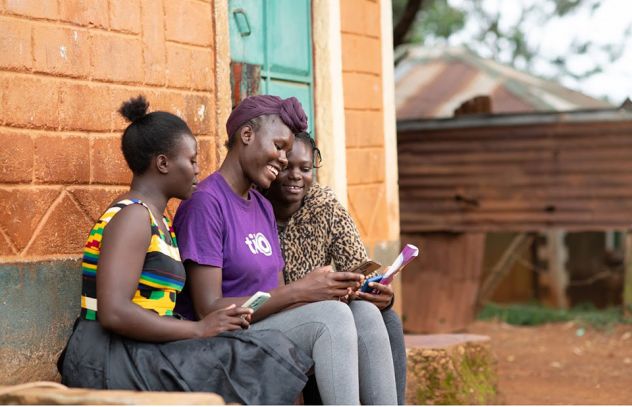UNAIDS urges speed and compassion urging pharmaceutical companies to enable access to new, life-saving medicines

GENEVA, Switzerland, 21 January 2025 -/African Media Agency(AMA)/- Today, at the World Economic Forum’s annual meeting in Davos, Switzerland the Joint United Nations Programme on HIV/AIDS (UNAIDS) has warned that new long-acting HIV prevention – and potentially treatment – medicines can help usher in the end of AIDS if corporate and political leaders move quickly and urgently to prioritise access for all low and middle-income countries.
Lenacapavir, produced by Gilead Sciences, has proved to be more than 95% effective in preventing HIV with just two doses a year and the company is now conducting trials of once-yearly shots. ViiV Healthcare has the injectable medicine Cabotegravir, administered once every two months to prevent HIV, which is already being used in some countries. Month-long vaginal rings are also in use and longer acting pills and vaginal rings are being trialled.
“These new technologies offer us a real shot at ending AIDS by 2030,” said Winnie Byanyima, Executive Director of UNAIDS and Under-Secretary-General of the United Nations. “But it comes with a caveat—only if pharmaceutical companies, governments, international partners and civil society unite around an HIV prevention and treatment revolution, can we use these medicines to their full potential and end AIDS much sooner than we previously thought.”
The breakthrough long-acting medicines could stem new HIV infections and are already being used to suppress the virus for some people living with HIV. But their potential can’t be unlocked unless everyone, everywhere who could benefit has access.
UNAIDS is urging pharmaceutical companies to move faster and ensure “affordable pricing and generic competition” in the market for the new HIV medicines. “We have no problem with profit, but we will not stand for profiteering,” said Ms Byanyima.
Gilead and ViiV have licensed generics manufacturing to a number of countries, which is to be applauded, but they are moving too slowly. Generics aren’t expected until next year- and many countries have been left out. Nearly all of Latin America, a region of rising HIV infections, has been excluded. In addition, to provide for the whole world, Gilead has licensed just six companies to make generic versions of the medicine – with no producer in sub-Saharan Africa. To make these medicines widely available and affordable, more generic production is needed.
Gilead has not announced a price for lenacapavir for prevention. However, used as treatment in the United States, the medicine can cost around US$ 40 000 per year per person. One study suggests that, if 10 million people are reached, generics could cost just $40 per person per year, a thousand times less.
At the end of 2023 only 3.5 million people are using pre-exposure prophylaxis. UNAIDS goal is to reach 10 million with preventative HIV medicine by the end of 2025. “This is possible, said Ms Byanyima, “But only if we have ambition. Look at injectable contraceptives—72 million women around the world accessed them in 2022. Look at COVID-19 vaccines in rich countries – 4.5 billion people were vaccinated in a year. Why can we not have the same ambition for HIV? We did it for HIV treatment and we can do it for prevention. We have done it before – and we can do it again.”
Today, 30 million of the 40 million people living with HIV are now on treatment—a huge, but long-awaited achievement which destroyed families and cost far too many lives.
While these new medicines are not a cure or a vaccine, they could halt the HIV pandemic.
The Global Fund to fight AIDS, TB and Malaria and the US President’s Emergency Plan for AIDS Relief (PEPFAR) recently announced a deal to get lenacapavir to 2 million people over the next three years. Which is a good start but not ambitious enough.
“Science has delivered a miraculous new tool: medicines that prevent HIV infection with injections just twice a year and which could work for treatment too,” said Ms Byanyima. “We must do better this time. Either companies step up, or governments step in. This is our shot to end AIDS – and we cannot afford to miss it.”
Distributed by African Media Agency (AMA) on behalf of UNAIDS.
UNAIDS
The Joint United Nations Programme on HIV/AIDS (UNAIDS) leads and inspires the world to achieve its shared vision of zero new HIV infections, zero discrimination and zero AIDS-related deaths. UNAIDS unites the efforts of 11 UN organizations—UNHCR, UNICEF, WFP, UNDP, UNFPA, UNODC, UN Women, ILO, UNESCO, WHO and the World Bank—and works closely with global and national partners towards ending the AIDS epidemic by 2030 as part of the Sustainable Development Goals. Learn more at unaids.org and connect with us on Facebook, Twitter, Instagram and YouTube.
The post UNAIDS calls on leaders at Davos to commit to rapid global access to revolutionary new long-acting HIV medicines appeared first on African Media Agency.






